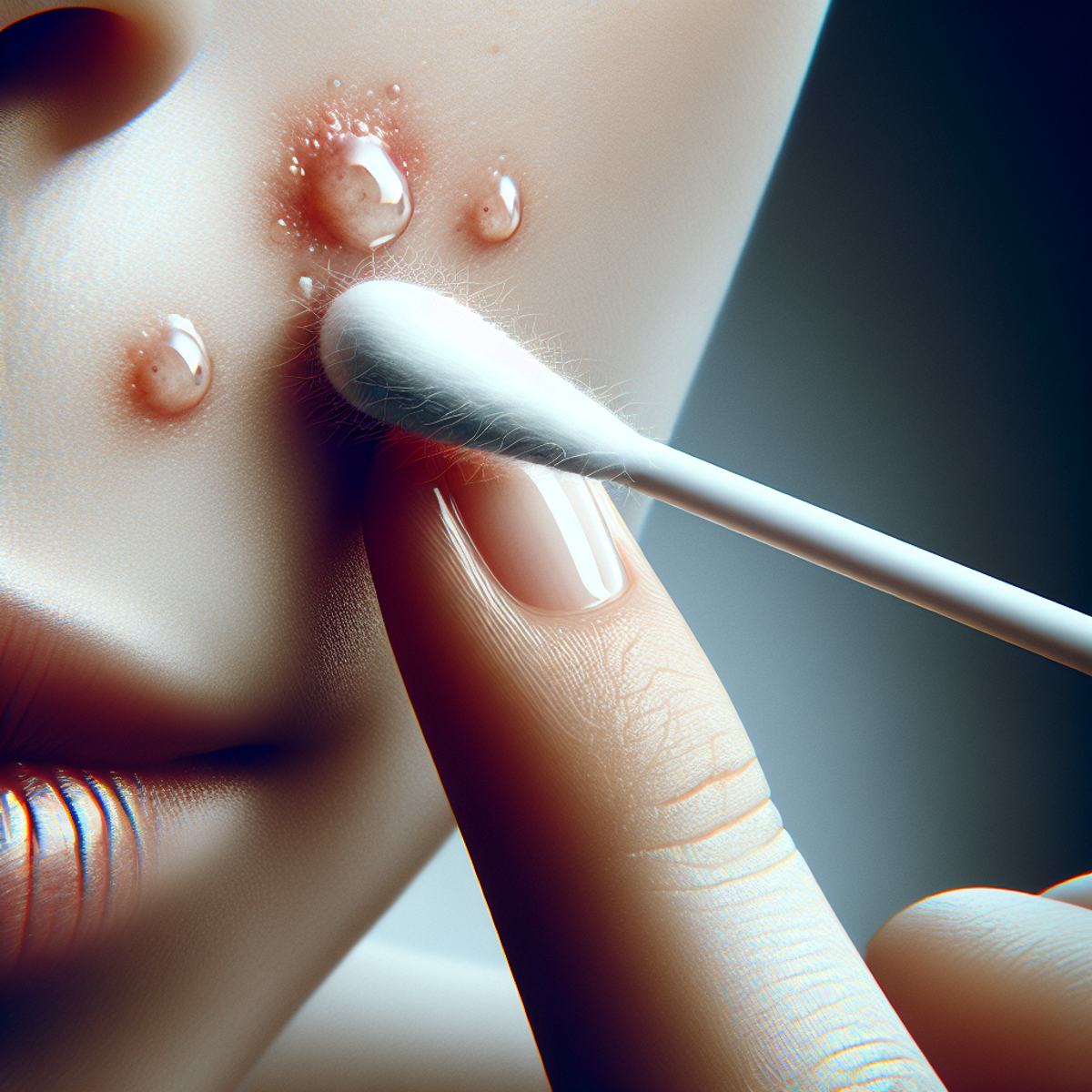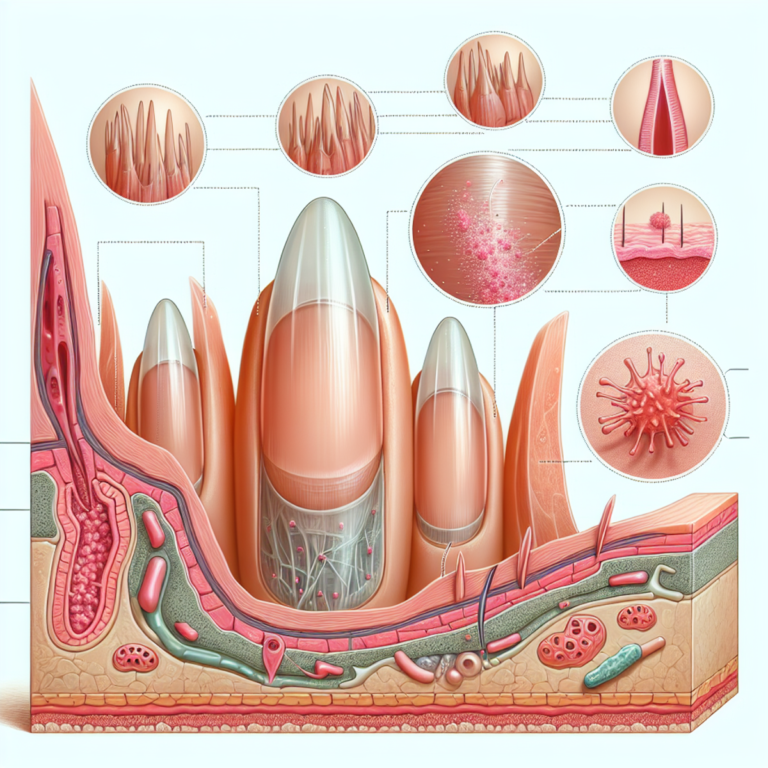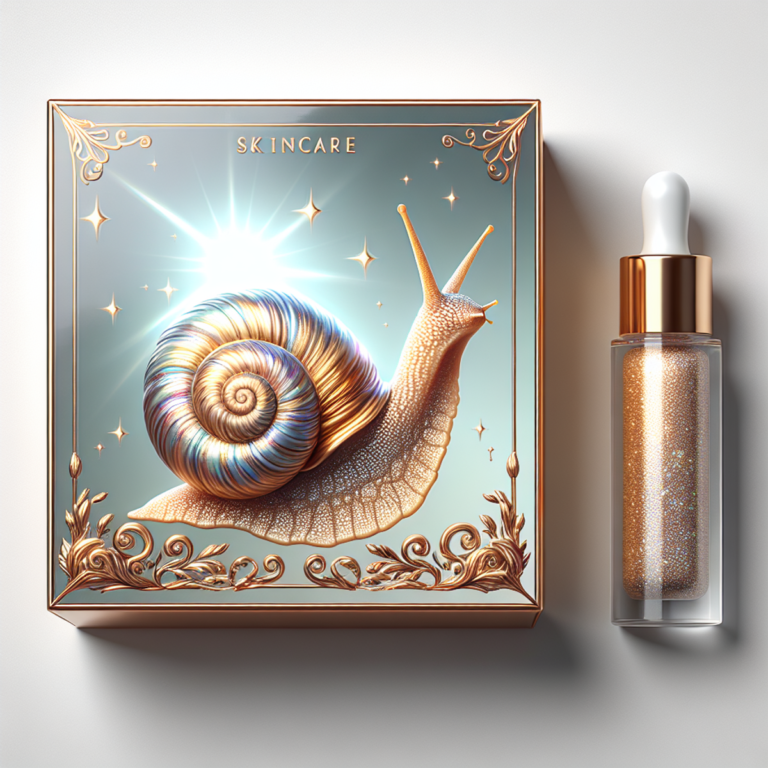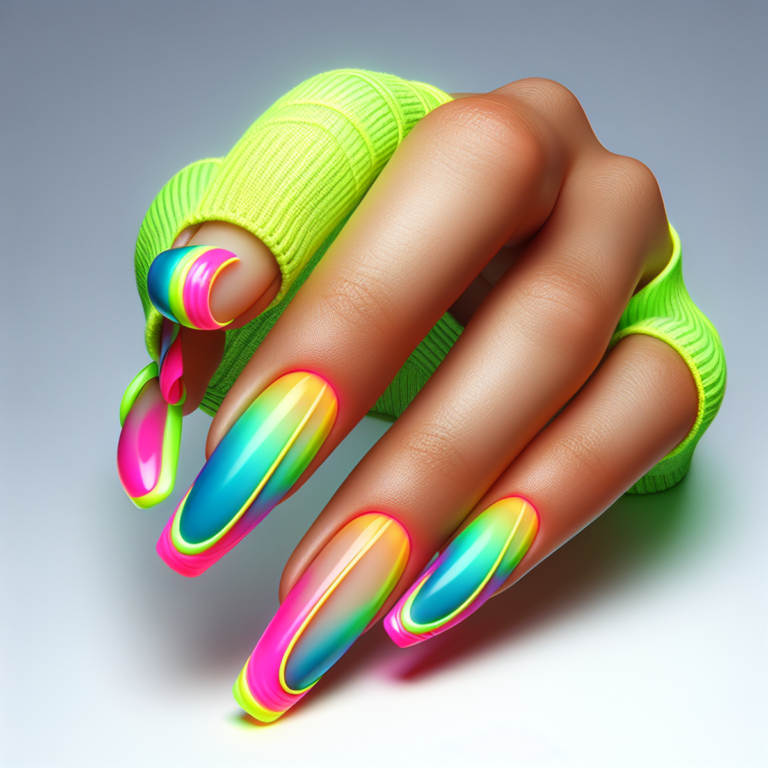Natural Ways to Get Rid of Pimples as Fast as Possible

Introduction
Pimples, or acne, are skin inflammations that occur when the sebaceous glands are infected with bacteria, swell up, and fill with pus. Common causes of acne breakouts include hormonal changes, certain medications, diet, and stress. The negative impact of pimples on self-esteem is well-documented, as people often desire quick solutions to alleviate their presence.
While it’s not possible to get rid of pimples overnight, natural remedies can help speed up the healing process. In this article, we’ll explore a range of natural ways to address pimples and promote clearer skin. These remedies may include essential oils, dietary adjustments, topical treatments, and lifestyle changes. It’s important to note that severe or painful acne sores should be addressed with the guidance of a healthcare professional.
1. Tea Tree Oil for Pimple Removal
Tea tree oil is a popular natural remedy for treating pimples and acne. It contains powerful antimicrobial and anti-inflammatory properties that can help reduce inflammation, kill acne-causing bacteria, and promote faster healing of pimples.
Here are some key points to consider when using tea tree oil for pimple removal:
- Dilution: Tea tree oil is highly concentrated and can be too harsh for direct application to the skin. It is important to dilute it with a carrier oil, such as jojoba oil or coconut oil, before applying it to the affected areas. A general guideline is to mix 1 part tea tree oil with 9 parts carrier oil.
- Application: After diluting the tea tree oil, apply a small amount to the pimple using a clean cotton swab or pad. Gently dab it onto the pimple and leave it on for a few hours or overnight. Rinse off with warm water and pat dry. It is best to do a patch test on a small area of skin before applying it to your entire face to check for any adverse reactions.
- Other Benefits: In addition to its effectiveness in treating pimples, tea tree oil has other potential benefits for overall skin health. It can help control excess oil production, reduce redness and swelling, unclog pores, and prevent future breakouts.
Tea tree oil can be found in various skincare products such as cleansers, toners, and spot treatments. However, it is important to choose products that contain a sufficient concentration of tea tree oil for maximum effectiveness.
Remember that everyone’s skin is unique, so results may vary. If you experience any irritation or allergic reactions, discontinue use immediately. It is always recommended to consult with a dermatologist or healthcare professional before incorporating any new skincare product into your routine.
2. Essential Oils for Pimple Removal
Essential oils have gained popularity as a natural remedy for various skin issues, including pimples. These oils are concentrated plant extracts that possess potent properties beneficial for acne-prone skin. Let’s explore some commonly used essential oils and their specific benefits:
Cinnamon Oil
- Cinnamon oil has antimicrobial properties that can help combat the bacteria responsible for causing acne breakouts.
- It also possesses anti-inflammatory properties, which can reduce redness and swelling associated with pimples.
Rose Oil
- Rose oil is known for its ability to soothe and calm irritated skin.
- It contains antioxidants that protect the skin from free radicals and promote overall skin health.
- Its gentle nature makes it suitable for sensitive or inflamed skin.
Lavender Oil
- Lavender oil has powerful antibacterial properties that can help fight acne-causing bacteria.
- It also possesses anti-inflammatory properties, which can alleviate swelling and redness caused by pimples.
- Lavender oil’s relaxing scent can also help relieve stress, which is often associated with acne flare-ups.
Clove Oil
- Clove oil is highly effective in killing acne-causing bacteria due to its potent antimicrobial properties.
- It has a numbing effect that can provide relief from pain or discomfort associated with inflamed pimples.
When using essential oils for pimple treatment, it is important to follow these guidelines:
- Always dilute essential oils before applying them to the skin to avoid irritation or sensitization. Mix a few drops of essential oil with a carrier oil like coconut or jojoba oil.
- Perform a patch test on a small area of your skin to check for any adverse reactions before using the oil on your face.
- Apply the diluted essential oil mixture directly to the affected areas using clean fingertips or a cotton ball.
- Avoid applying essential oils near the eyes or mucous membranes as they can cause irritation.
- If you experience any redness, itching, or discomfort, discontinue use immediately.
Remember, while essential oils can be beneficial for pimple removal, they may not work for everyone. It’s essential to listen to your skin and consult with a dermatologist if you have severe or persistent acne.
3. Dietary Approaches
When it comes to tackling acne, dietary adjustments can play a significant role in managing breakouts. Incorporating certain elements into your daily diet can provide a holistic approach to combating pimples.
3.1 Green Tea for Acne Control
Green tea is renowned for its antioxidant properties, which can be beneficial for reducing breakouts and supporting overall skin health. The polyphenols found in green tea have been shown to help combat inflammation and bacterial growth, both of which are key factors in the development of acne.
- To maximize the potential benefits of green tea for acne control, consider integrating it into your daily routine as a soothing beverage or topical application.
- When consumed as a beverage, aim for high-quality, organic green tea to ensure that you’re getting the most out of its natural properties.
- Topical application of green tea extracts or products containing green tea can provide targeted antioxidant protection for the skin.
- While green tea can be a valuable addition to your skincare regimen, it’s important to be consistent in its use to observe potential improvements in acne control over time.
Incorporating green tea into your daily routine not only offers potential benefits for managing acne but also contributes to an overall healthy lifestyle. By leveraging its antioxidant properties, you can take proactive steps towards reducing breakouts and promoting clearer, healthier-looking skin.
By incorporating green tea into your daily routine, you can harness its antioxidant properties to reduce breakouts and promote healthier skin. Whether enjoyed as a beverage or used in topical applications, the polyphenols in green tea offer valuable support in combating inflammation and bacterial growth associated with acne.
3.2 Aloe Vera Gel for Pimple Reduction
Aloe vera gel is a popular natural remedy for acne-prone skin due to its healing and soothing properties. When used correctly, it can help reduce pimple inflammation and improve overall skin health. Here’s what you need to know about using aloe vera gel for pimple reduction:
1. Healing Properties
Aloe vera gel contains compounds that have anti-inflammatory and antimicrobial effects, making it effective in calming irritated skin and reducing redness associated with pimples.
2. Soothing Effects
The gel’s cooling sensation can provide relief to inflamed skin, offering a gentle and natural alternative to other harsher pimple treatments.
3. Recommended Usage Tips
When using aloe vera gel for pimple reduction, it’s important to:
- Select pure, organic aloe vera gel without added colorants or fragrances to minimize the risk of irritation.
- Apply a small amount of the gel directly to cleansed skin, focusing on areas with active breakouts.
- Allow the gel to absorb fully before applying any additional skincare products or makeup.
- Consider performing a patch test on a small area of skin to check for any adverse reactions before regular use.
Aloe vera gel can be incorporated into your skincare routine as an additional step after cleansing and toning. Its gentle nature makes it suitable for various skin types, including sensitive or acne-prone skin. When used consistently, aloe vera gel may contribute to the reduction of pimple-related redness and discomfort while supporting the overall healing process of blemishes.
Remember that while natural remedies like aloe vera gel can be beneficial for mild to moderate acne, severe cases may require professional medical attention. Always seek guidance from a healthcare professional if you experience persistent or severe acne symptoms.
3.3 Zinc Supplementation for Acne Management
When it comes to natural remedies for acne, zinc supplementation is a potential option that may help in managing breakouts. Zinc plays a crucial role in supporting skin integrity and overall health. It has been found to have anti-inflammatory properties and can regulate sebum production, making it an effective treatment for acne.
To incorporate zinc into your diet, you can consider the following sources:
- Foods rich in zinc: Consuming foods high in zinc can be beneficial for promoting healthy skin. Some examples include oysters, beef, chicken, pumpkin seeds, and lentils.
- Zinc supplements: If you have a zinc deficiency or want to boost your intake, supplements can be a convenient option. It’s important to note that before starting any supplementation, it is recommended to consult with a healthcare professional to determine the appropriate dosage for your specific needs.
While zinc supplementation shows promise as an acne treatment, it’s essential to approach it with caution. Excessive intake of zinc can have adverse effects on your health, such as nausea and copper deficiency. Therefore, it’s crucial to follow the recommended dosage and seek guidance from a healthcare professional.
While incorporating zinc into your diet may help manage acne, it is not a quick-fix solution. Consistency is key when it comes to seeing improvements in your skin health.
In addition to zinc supplementation, other dietary factors can contribute to pimple formation. For instance, consuming sugary or high-glycemic foods may trigger breakouts in some individuals. On the other hand, a balanced diet rich in fruits, vegetables, and whole grains provides essential nutrients for healthy skin.
Overall, incorporating zinc-rich foods or considering a zinc supplement alongside other natural remedies like green tea, aloe vera gel, brewer’s yeast, or fish oil with EPA and DHA can be part of an effective acne management approach. However, it’s important to remember that everyone’s skin is unique, and what works for one person may not work for another. Experimenting with different natural remedies and consulting with a healthcare professional can help you find the best solution for your specific needs.
3.4 Brewer’s Yeast for Pimple Prevention
Diet plays a crucial role in maintaining healthy skin, and certain dietary factors can contribute to the formation of pimples. To achieve clear skin and prevent acne breakouts, it’s important to maintain a balanced diet that includes essential nutrients. Brewer’s yeast is one such natural remedy that can help in pimple prevention by promoting a healthy gut microbiome.
How does brewer’s yeast help maintain clear skin?
- Brewer’s yeast is a type of fungus that is rich in B-complex vitamins, including B1 (thiamine), B2 (riboflavin), B3 (niacin), B5 (pantothenic acid), and B6 (pyridoxine). These vitamins are essential for overall skin health and play a crucial role in maintaining the integrity of the skin barrier.
- The presence of beneficial bacteria in the gut is essential for maintaining a healthy immune system and preventing inflammation, which can contribute to acne breakouts. Brewer’s yeast promotes the growth of beneficial bacteria in the gut, thus supporting a healthy gut microbiome.
Incorporating brewer’s yeast into your diet
- Brewer’s yeast can be consumed as a nutritional supplement in capsule or powder form. It is also commonly used as an ingredient in baking and brewing.
- When choosing a brewer’s yeast supplement, opt for one that is specifically formulated for human consumption and free from contaminants.
- It is important to note that while brewer’s yeast may be beneficial for some individuals in preventing pimples, results may vary. It is always recommended to consult with a healthcare professional before starting any new supplement regimen.
Other factors to consider for pimple prevention
While brewer’s yeast can be helpful in maintaining clear skin, it is important to address other lifestyle factors as well. Here are some additional tips for preventing pimples:
- Maintain a balanced diet rich in fruits, vegetables, whole grains, lean proteins, and healthy fats.
- Stay hydrated by drinking plenty of water throughout the day.
- Avoid excessive consumption of sugary and processed foods, as they can contribute to inflammation and acne breakouts.
- Practice good skincare hygiene by cleansing your face twice a day with a mild cleanser and avoiding harsh scrubbing or over-washing.
- Avoid touching your face frequently, as it can transfer bacteria and irritate the skin.
- Get regular exercise to promote circulation and reduce stress levels, which can also contribute to acne breakouts.
By incorporating brewer’s yeast into your diet and adopting healthy lifestyle habits, you can take significant steps towards preventing pimples and achieving clear, healthy skin. Remember to consult with a healthcare professional for personalized advice based on your individual needs.
3.5 Fish Oil with EPA and DHA for Acne Treatment
Certain dietary factors can contribute to pimple formation, making it crucial to maintain a balanced diet for healthy skin. Fish oil, specifically the omega-3 fatty acids EPA (eicosapentaenoic acid) and DHA (docosahexaenoic acid), has gained attention for its potential in acne treatment.
How Fish Oil Helps with Acne
Fish oil’s omega-3 fatty acids are known for their anti-inflammatory effects, which play a significant role in managing acne. Inflammation is a key factor in the development of pimples, as it can lead to increased sebum production and clogged pores. By reducing inflammation, fish oil may help control these processes and prevent the formation of new pimples.
Choosing the Right Fish Oil Supplement
When considering fish oil for acne treatment, it’s important to choose high-quality sources that provide adequate amounts of EPA and DHA. Look for fish oil supplements derived from cold-water fish such as salmon, mackerel, or sardines, as they tend to have higher levels of these beneficial fatty acids.
Recommended Dosage
Dosage recommendations for fish oil vary depending on individual needs and health conditions. Typically, a daily dose of 1-2 grams of combined EPA and DHA is recommended for general health benefits. However, higher doses may be necessary for specific therapeutic purposes like acne treatment. It’s always best to consult with a healthcare professional to determine the appropriate dosage based on your individual circumstances.
The Importance of a Holistic Approach
Incorporating fish oil into your diet is not the only step you can take towards acne management. It’s essential to remember that a comprehensive approach that includes other natural remedies and lifestyle changes will yield the best results. Here are some other practices you can consider:
- Green tea consumption: Green tea contains antioxidants that can help reduce inflammation and fight acne-causing bacteria. Drinking a cup or two of green tea daily may be beneficial for your skin.
- Aloe vera gel application: Aloe vera has soothing and anti-inflammatory properties, which can help calm irritated skin. Applying pure aloe vera gel to your acne-prone areas may provide relief.
- Zinc supplementation: Zinc is an essential mineral that plays a role in wound healing and immune function. Some studies suggest that zinc supplements may improve acne symptoms, but more research is needed.
- Brewer’s yeast intake: Brewer’s yeast is a nutritional supplement that contains various B vitamins, chromium, and selenium. Some people believe that it can help improve acne, but scientific evidence is limited.
- Stress reduction techniques: Chronic stress can worsen acne by triggering hormonal imbalances and increasing inflammation. Finding healthy ways to manage stress, such as practicing yoga or meditation, may benefit your skin.
Remember that while natural remedies can be effective, it’s important to be patient as results may take time. Consistency and adherence to a well-rounded approach will increase your chances of achieving clearer and healthier skin.
4. Topical Remedies and Skincare Practices
4.1 Witch Hazel for Pimple Treatment
Witch hazel is a natural astringent that offers several benefits for pimple treatment:
- Astringent Properties: Witch hazel helps control excess oil production, making it beneficial for individuals with oily or acne-prone skin. By reducing oiliness, it can contribute to preventing clogged pores and breakouts.
- Pore Tightening: Its astringent properties also aid in tightening the skin’s pores, which can lead to a smoother complexion and potentially reduced visibility of pores.
When using witch hazel as a pimple treatment, it’s important to follow these guidelines:
- Choose Alcohol-Free Formulas: Opt for alcohol-free witch hazel products to prevent excessive drying of the skin, which can exacerbate acne issues.
- Application Technique: Apply witch hazel to a cotton pad and gently swipe it across the affected areas of your skin after cleansing. This can help remove any remaining impurities and prepare your skin for further skincare products.
- Frequency: You can use witch hazel once or twice daily as part of your skincare routine. However, if you notice any signs of irritation or dryness, reduce the frequency of application.
- Hydration: Follow up with a suitable moisturizer to keep your skin adequately hydrated, especially if you have dry or combination skin.
Incorporating witch hazel into your skincare regimen may contribute to managing acne by addressing excess oil and promoting balanced skin. As with any new skincare product, it’s advisable to perform a patch test before regular use to ensure compatibility with your skin type.
4.2 Apple Cider Vinegar for Pimple Removal
Apple cider vinegar is a popular natural remedy for pimple removal, known for its exfoliating and pH-balancing properties. When used properly, it can effectively aid in the treatment of pimples. Here are some essential talking points to consider:
Exfoliating Properties
Apple cider vinegar acts as a gentle exfoliant, helping to remove dead skin cells and unclog pores, which can contribute to the formation of pimples.
pH Balancer
The acidic nature of apple cider vinegar can help balance the skin’s pH levels, creating an environment less conducive to acne-causing bacteria.
Precautions and Dilution Methods
It’s crucial to dilute apple cider vinegar before applying it to the skin, as its undiluted form can be too harsh and may cause irritation. Proper dilution methods ensure safe and effective use.
When using apple cider vinegar for pimple removal, consider the following precautions:
- Always dilute apple cider vinegar with water before applying it to the skin.
- Perform a patch test on a small area of skin to check for any adverse reactions before using it more extensively.
- Avoid applying apple cider vinegar directly to open wounds or active acne sores, as it may cause stinging or irritation.
By incorporating apple cider vinegar into your skincare routine with caution and care, you can potentially harness its benefits for pimple removal without causing harm to your skin.
Remember to always consult a healthcare professional before integrating new natural remedies into your skincare regimen, especially if you have sensitive skin or existing skin conditions.
4.3 Honey and Cinnamon Mask: A Soothing DIY Treatment
The combination of honey and cinnamon offers a natural and soothing remedy for treating pimples. Both ingredients possess antibacterial and anti-inflammatory properties, making them effective in reducing pimple size and redness.
Antibacterial and Anti-Inflammatory Effects
- Honey: Acts as a natural antibacterial agent, preventing the growth of acne-causing bacteria on the skin.
- Cinnamon: Exhibits anti-inflammatory properties that can help soothe irritated skin and reduce swelling associated with pimples.
Step-by-Step Guide
Creating and applying a honey and cinnamon mask at home is a simple process that can be highly effective in treating pimples:
- Ingredients: Mix 2 tablespoons of honey with 1 teaspoon of cinnamon to form a paste.
- Application: Apply the mask to the affected areas, ensuring a thin, even layer.
- Duration: Leave the mask on for 10-15 minutes to allow the skin to absorb its beneficial properties.
- Rinse: Gently rinse off the mask with warm water and pat your skin dry.
Remember to perform a patch test before applying the mask to check for any adverse reactions, especially if you have sensitive skin.
By incorporating this natural remedy into your skincare routine, you can take proactive steps towards preventing and treating pimples while enjoying the soothing effects of this DIY treatment.
Lifestyle Changes for Long-Term Acne Prevention
Acne is not just a superficial skin issue; it can also have a significant impact on our emotional well-being and self-esteem. While natural remedies can help in getting rid of pimples, it’s equally important to adopt lifestyle changes that promote long-term acne prevention. By addressing the underlying causes of acne, we can reduce the frequency and severity of breakouts. Here are some effective stress reduction techniques that can play a crucial role in preventing acne:
Effective Stress Reduction Techniques
Stress is known to worsen acne symptoms by triggering hormonal imbalances and increasing inflammation in the body. By managing stress levels, we can minimize its impact on our skin. Here are some stress reduction techniques that can be incorporated into your daily routine:
- Mindfulness Meditation: Engaging in mindfulness meditation allows us to focus on the present moment and cultivate a sense of calmness. Find a quiet space, sit comfortably, close your eyes, and focus on your breath. Pay attention to the sensations in your body and let go of any racing thoughts or worries.
- Yoga: Yoga combines physical movement with deep breathing exercises, making it an excellent stress-reducing activity. Regular yoga practice not only helps to increase flexibility and strength but also promotes relaxation and reduces anxiety levels.
- Deep Breathing Exercises: Deep breathing exercises are simple yet powerful techniques to calm the mind and relax the body. Take slow, deep breaths in through your nose, hold for a few seconds, and then exhale slowly through your mouth. Repeat this process several times, allowing yourself to fully immerse in the rhythm of your breath.
- Regular Exercise: Engaging in regular physical activity releases endorphins, which are natural mood boosters. Whether it’s going for a jog, dancing, or participating in a sport you enjoy, find an exercise routine that suits you and stick to it.
- Quality Sleep: Prioritizing quality sleep is essential for managing stress levels. Lack of sleep can disrupt hormonal balance and contribute to increased inflammation, leading to more acne breakouts. Aim for 7-8 hours of uninterrupted sleep each night and establish a relaxing bedtime routine.
In addition to these stress reduction techniques, there are several other lifestyle changes that can help prevent acne:
- Cleanse Gently: Avoid harsh cleansers that strip the skin of its natural oils. Opt for a mild, non-comedogenic cleanser that removes dirt and excess oil without causing irritation.
- Avoid Touching Your Face: Touching your face transfers bacteria, oil, and dirt from your hands onto your skin, potentially causing breakouts. Be conscious of this habit and try to avoid touching your face throughout the day.
- Use Non-Comedogenic Products: When choosing skincare products, look for those labeled as non-comedogenic. These products are specifically formulated not to clog pores, reducing the risk of acne breakouts.
- Protect Your Skin from the Sun: UVA and UVB rays can worsen acne symptoms and lead to post-inflammatory hyperpigmentation. Apply a broad-spectrum sunscreen with SPF 30 or higher daily, even on cloudy days.
By integrating these stress reduction techniques and lifestyle changes into your daily routine, you can take proactive steps towards preventing acne breakouts in the long run. Remember, consistency is key when it comes to maintaining healthy skin.
5.2 Incorporating Self-Care Practices for Healthy Skin
Self-care plays a crucial role in maintaining clear and healthy skin, especially when it comes to preventing acne breakouts. Chronic stress can directly affect the skin, leading to ongoing acne flare-ups. Understanding this connection between stress and acne is key to developing effective self-care practices for acne prevention.
Here are some important self-care practices that can promote healthy skin and help prevent acne:
- Regular Exercise: Engage in physical activity to reduce stress and improve blood circulation, which can contribute to healthier skin.
- Adequate Sleep: Prioritize quality sleep for overall well-being and skin health. Lack of sleep can increase stress levels and hormonal imbalances that may lead to acne breakouts.
- Healthy Diet: Eat a balanced diet with plenty of fruits, vegetables, and lean proteins to provide essential nutrients for skin health. Also, remember to stay hydrated for optimal skin hydration and elasticity.
- Skincare Routine: Establish a consistent skincare routine that includes gentle cleansing, moisturizing, and sun protection to manage oil production and minimize the risk of clogged pores.
- Mindfulness Practices: Incorporate mindfulness meditation, deep breathing exercises, or yoga into your daily routine to effectively reduce stress levels and improve your skin’s overall health.
By making these self-care practices a priority, you can create a positive environment for healthy skin while effectively managing stress levels to prevent ongoing acne breakouts.
Conclusion
While it’s not possible to get rid of pimples overnight, there are natural ways to speed up the healing process and reduce acne breakouts. By incorporating these remedies into your skincare routine, along with adopting a holistic approach to skincare, you can achieve healthier and clearer skin.
Here are the key takeaways:
- Explore natural remedies such as:
- Tea tree oil
- Essential oils (cinnamon, rose, lavender, clove)
- Green tea
- Aloe vera gel
- Zinc supplementation
- Brewer’s yeast
- Fish oil with EPA and DHA
- Witch hazel
- Apple cider vinegar
- Honey and cinnamon mask
- Remember to properly dilute essential oils and follow recommended guidelines for application.
- Incorporate dietary changes like including green tea in your daily routine for antioxidant protection and reducing breakouts.
- Consider incorporating stress reduction techniques like mindfulness meditation, yoga, and deep breathing for effective long-term acne prevention.
- Keep in mind that severe or persistent acne issues may require consultation with a dermatologist.
By embracing these natural remedies and making lifestyle changes, you can improve your skin health and regain your confidence. Remember that consistency is key when it comes to skincare routines. Give yourself time to see results and be patient with the healing process.
Embrace the power of nature in your skincare journey and enjoy the benefits of a healthier complexion.










